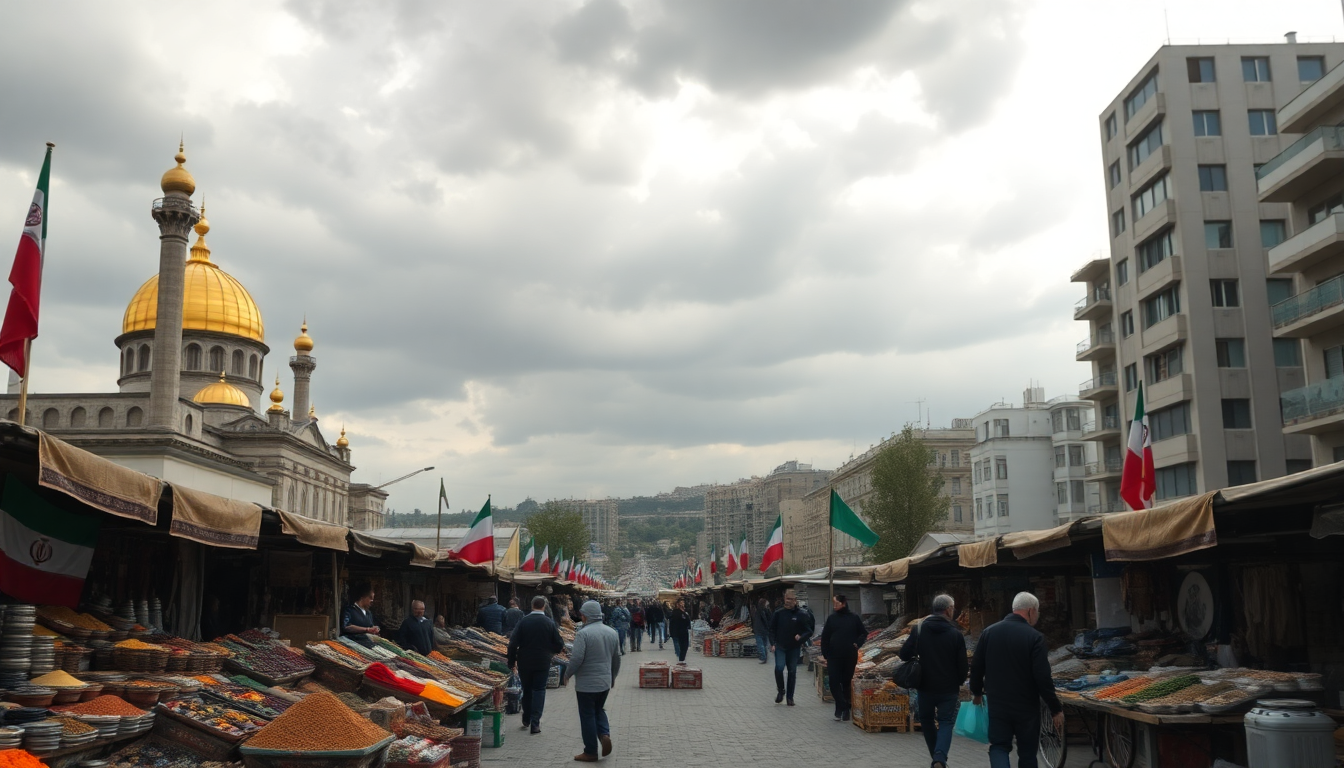Table of Contents
The intricate tapestry of Middle Eastern geopolitics is continually evolving, especially with the rising tensions between Israel and Iran. Recent comments from Kremlin officials reveal just how serious things are getting, particularly their concerns over potential destabilization if the U.S. or Israel were to take extreme measures against Iran’s Supreme Leader, Ayatollah Ali Khamenei. As we unpack these developments, it’s evident that the stakes are extraordinarily high—not only for the region but for global stability as well.
The Kremlin’s Perspective on Regime Change
In a recent interview, Dmitry Peskov, spokesperson for Russian President Vladimir Putin, passionately discussed the potential fallout from an assassination of Khamenei, referring to it as opening a “Pandora’s box.” Peskov’s remarks highlight Russia’s firm opposition to any attempts at regime change in Iran. He argues that such actions wouldn’t just be unacceptable; they could also trigger a surge in extremism within the country. The Kremlin’s position is grounded in a long-standing partnership with Iran, which they view as a crucial counterbalance to U.S. influence in the region.
Peskov went on to warn that direct involvement from other countries, particularly the U.S., could lead to military support for Israel, dangerously escalating the situation even further. As tensions rise, the risk of a new cycle of confrontations becomes alarmingly real. History tells us that conflicts in the Middle East can spiral out of control in the blink of an eye, making the Kremlin’s fears all the more justified.
Current Military Engagements and Their Implications
Recent military actions have underscored just how volatile the situation is. Following a missile strike from Iran that hit the Israeli city of Be’er-Sheva, Israel retaliated with airstrikes on Iranian missile platforms, ramping up the military confrontation. The Israeli Defense Forces reported significant strikes against military installations, further entrenching the conflict. Israel’s primary aim remains the dismantling of Iran’s nuclear capabilities and missile technology, with officials stressing that the future of Iran’s leadership ultimately rests in the hands of its own people.
These developments not only reveal the military strategies both sides are employing but also highlight the complex web of alliances and rivalries that define Middle Eastern geopolitics. With the U.S. considering its military options, the risk of a wider conflict looms large, prompting many to call for diplomatic solutions. The Italian Foreign Minister’s assertion that diplomacy is the only way forward reflects a growing awareness of the intricate challenges at play.
The Broader Geopolitical Landscape
The current tensions in the Middle East can’t be seen in isolation. The actions of global powers like China, India, and Pakistan, all of whom are bolstering their nuclear capabilities, add another layer of complexity to the situation. The intersection of these nations’ interests with those of Israel and Iran creates a precarious environment where the potential for miscalculation is ever-present.
As the international community watches closely, discussions surrounding Iran’s leadership and military capabilities will undoubtedly influence the future of regional stability. The possibility of escalation remains high, making it crucial for all parties involved to respond cautiously and thoughtfully. In navigating this tumultuous landscape, we must consider not just the immediate actions but their long-term implications for peace and security within the region.


